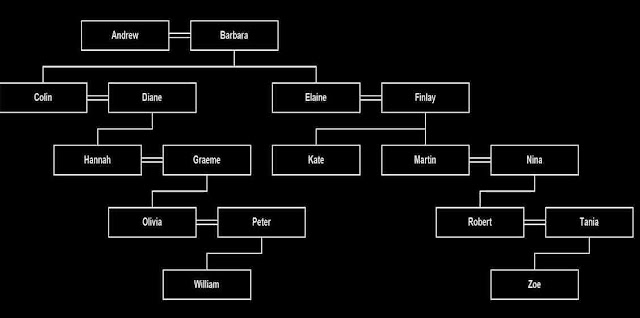Brothers and sisters can prove to be life long friends or alternatively squabble their whole lives but they may not seem a significant part of family history.
Research is generally aimed at looking at your direct ancestors so your relatives' brothers and sisters may seem of little importance. They do play a vital role in your investigations however!
 |
| Image:debspoons www.FreeDigitalPhotos.net |
Elderly relations often move in with their children and you may find that elusive ancestor residing with a sibling of your direct ancestor. If this is a female then she may have married so if you get stuck with where an ancestor ended up, it is worth looking at what happens to other family members such as siblings and checking out possible marriage records.
If you hit a brick wall with your research, siblings can be a great way of trying to get over your genealogical barrier. Looking at the family history of a sibling might bring clues to your own direct ancestry. Often, one person inherits all the significant documents or photos in a family and by looking at other people who share some of your family history, you may find information that is important for you also.
Siblings can also help add to the family story. Although not direct line ancestors to your family, they were the children of your ancestors so have a great significance to the lives that your ancestors led.
Often migration for example, was to give their families a better life and it can be interesting to look at how people fared. Circumstances can often change quickly for these people. Lack of opportunity or education often meant poverty but a change of country could open up previously unimaginable ways to improve their situation.
 At Kin Tree recently, we had a case where we unexpectedly discovered a whole new part of a family story as a result of looking at a sibling. We had the death certificate for someone and noticed that the person who had registered the death was the son-in-law of the deceased. We had no record of a daughter as we only had sons showing up on census records.
At Kin Tree recently, we had a case where we unexpectedly discovered a whole new part of a family story as a result of looking at a sibling. We had the death certificate for someone and noticed that the person who had registered the death was the son-in-law of the deceased. We had no record of a daughter as we only had sons showing up on census records.
It turned out there was a daughter who had left home by the time that the family had moved to Scotland.. We found her marriage and her death certificates which confirmed her parents' names. The family had originally come from Ireland and we were able to track down a birth certificate for her in Ireland which gave us a start on the family's Irish roots. From that, we were able to trace back two more generations of the family, taking us back to around 1804.
For a free and friendly chat about your family history, email us at kintree@ymail.com
Last article: Does It Matter How You Spell Your Name?
















